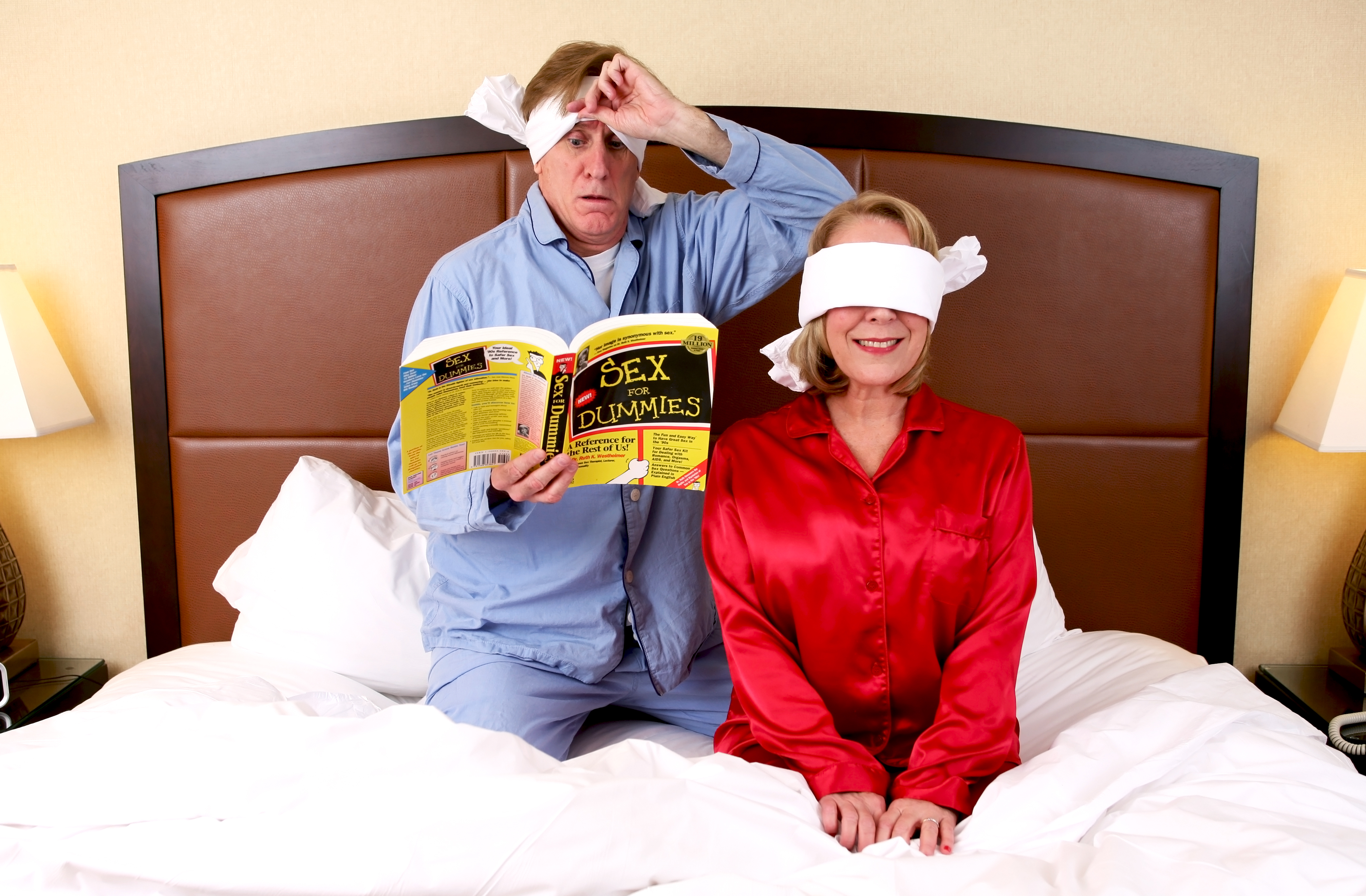On the surface, Michele Riml’s Sexy Laundry is a basketful of clichés about men and women, love and marriage, Venus and Mars. In the hands of director Terry Martin and actors Wendy Welch and Bob Hess, the predictable script finds moments of raw honesty that make the 80-minute show worth slightly more than it first seems.
In a swanky but nondescript hotel room (D Magazine recommended it!), Alice and Henry are trying to rebuild the love affair that 25 years of the daily grind has worn down to the nub. The kids are nearly out of the house, Henry is always working, and Alice feels dissatisfied and ignored. So she checks out Sex For Dummies from the library and uses her (furtively purchased, because women must always shop in secret) cashmere sweater as a blindfold in an attempt to get her hubby to open up to her, both physically and emotionally.
In true sitcom fashion, Henry is having none of it. He’s outraged by the hotel’s price, insulted by the thin Italian towels, and flummoxed by the many remotes that control everything from the TV to a disco-worthy light plot. Every seductive suggestion from his wife is treated with exasperation, which in turn leads Alice to nag, nag, nag.
Because those are the roles. The wife nags, the husband withdraws and complains. It’s only in spot-lit monologues that the audience is allowed a peek at Henry and Alice’s true feelings, and Welch and Hess are what make those moments enlightening. We see that Henry isn’t dissatisfied with his wife, but rather himself. Same goes for Alice, which isn’t really much of a surprise, but both actors imbue their characters with enough vulnerability that in the end we’re sympathetic to their missteps.
“You spend $50 and they’re just going to die,” Henry wails when his wife accuses him of never sending her flowers. “Well, I spent 25 years with you and you’re just going to die too,” Alice retorts. Riml tries to up the stakes multiple times—the sharing of erotic fantasies, the threat of divorce, a leather whip—but it’s obvious that Henry and Alice are going to confess their fears and reconcile. You just hope that in their next few years together, they learn to step outside the gender roles the play assigned them.






